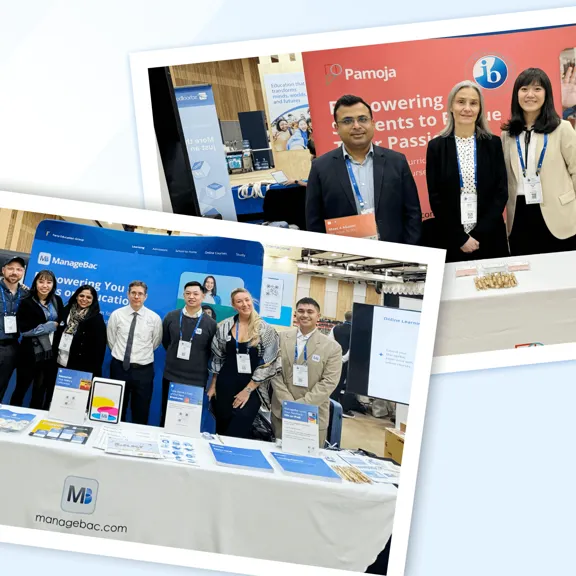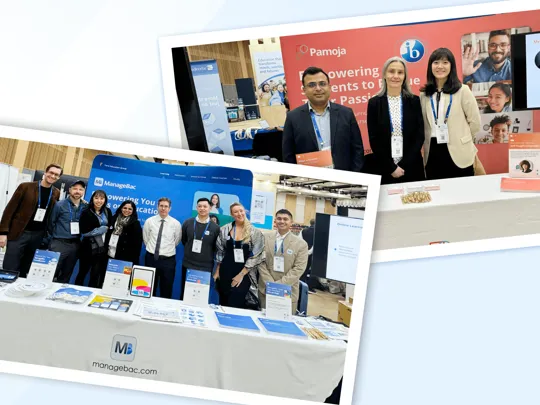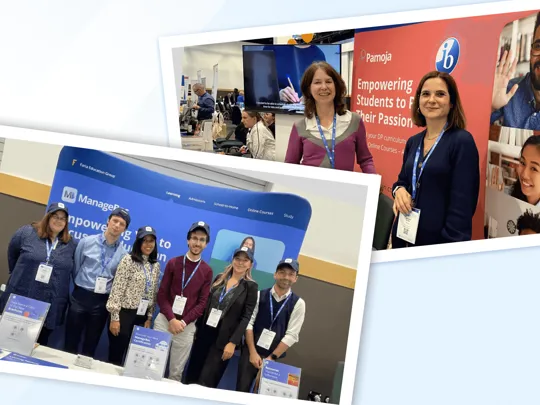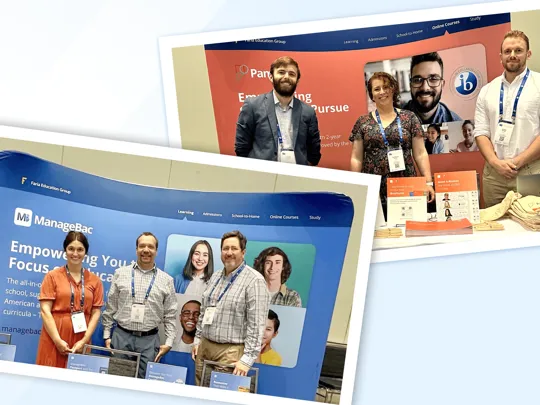From 21 to 23 March 2024, the IB Global Conference took place in Daegu, Republic of Korea, gathering over 1,300 educators from 38 countries. The event was a hub for sharing innovative educational practices, discussing the future of learning, and exploring the theme of ‘Inspiring Learners, Realising Potential’.
This year’s conference highlighted how we, as an educational community, can enhance our pedagogical leadership and curriculum to shape a generation capable of creating a better world.
Keynote insights
The keynote sessions provided deep insights into the future of education. Speakers Meg Durham, Dr. Paul Kim, Mr. Ameeta Mulla Wattal, and IB Director General Olli-Pekka Heinonen shared their visions on maximising pedagogical leadership and curriculum development to foster young people’s potential.
Meg Durham, the voice behind ‘The School of Wellbeing’ podcast, highlighted the link between teacher wellbeing and student success. She argued that in order for students to thrive, educators must prioritise their own wellbeing – emphasising the importance of building relationships and making connections within the educational community.
Dr. Ameeta Mulla Wattal engaged the audience with her keynote, advocating for a shift from isolation to alliance, self-centeredness to co-existence, and confrontation to interaction. Drawing on Otto Scharmer’s Theory U, she touched on the importance of co-initiating, co-sensing, presencing, co-creating, and co-evolving in leading the emerging future. Dr. Ameeta encouraged educators to adopt reflective practices and collaborative innovation to tackle complex challenges.
Dr. Paul Kim’s presentation on the evolving landscape of technology and its impact on education was eye-opening. He highlighted the emergence of a ‘new normal’, characterised by AI-accelerated automation, productivity leaps, and the potential pitfalls of depending on AI excessively. These developments, he pointed out, could lead to a decline in social skills and a risk of mediocrity.
He also posited that, in a world inundated with information, what sets us apart is our ability to ask meaningful questions, stating: ‘As we enter the AI era, true student success lies not just in the answers they find but in the depth and daring of the questions they pose’. This perspective shifts our focus towards the learning journey itself, rather than just its outcomes. By doing so, educators are positioned to guide students toward thriving in a future shaped by AI – a future demanding not only traditional 21st Century skills like Communication, Collaboration, Critical Thinking, and Creative Thinking (known as the Four Cs), but also Compassion and Commitment
Curriculum enhancement
The Middle Years Programme (MYP) is undergoing enhancements aimed at refining the curriculum and supporting both learners and educators. The programme aims to create a better learning environment for students, simplify processes for teachers, and offer flexibility to schools.
Fundamental design principles now include fostering international-mindedness, and placing the learner at the centre of the MYP. A new approach to the designed curriculum offers greater flexibility with multiple sample templates, allowing schools to create units that best fit their context.
The Primary Years Programme (PYP) has also introduced updates to its curriculum framework, focusing on balanced, future-facing theme descriptors and subject-specific learning continuums for a more integrated learning approach.
New tools and resources support inquiry-based learning and language proficiency, alongside specialised materials for early years education. Additionally, a curriculum design toolkit helps customise the PYP framework to meet the unique needs of different school environments.
Building a global educational community
During the expo stage, Ryan Bulosan, Head of Community, shared how ManageBac is strengthening its community with the introduction of several initiatives – including the ManageBac User Group Conference, ManageBac Hub, and ManageBac Ambassador Programme. With over 150 ambassadors and counting, these platforms offer educators opportunities to showcase their expertise, support their schools, and engage with a global community.
For the Ambassador Spotlight, we focused on Mike Cuepo, Middle and High School Assistant Principal at Beijing International Bilingual Academy. He offered insights into how ManageBac has been a catalyst for positive transformation within their school, emphasising the platform’s role in understanding students better.
Mike underlined the importance of contextual learning, stating: ‘To inspire learners, educators must acknowledge, consider, and work within the context of the students. ManageBac provides visibility to this context’. Alongside this, he shared tips for successful implementation and advice on how to leverage ManageBac to its fullest potential.







